Ivermectin Dispersible Tablet has actually become quite a key component in the treatment of various parasitic infections that affect people all across the globe. With its ease of administration, particularly in case of several pediatric and elderly patients that are there, the dispersible form of Ivermectin thus offers a very user-friendly alternative to traditional tablets or capsules that are there. Whether you are a healthcare provider, or a patient, or just a curious reader, understanding the mechanism of action, and its benefits, and safe use of Ivermectin Dispersible Tablet is quite essential.
What is Ivermectin?
Ivermectin is actually an antiparasitic medication that was first developed in the 1970s. It belongs to a class of drugs which are also known as anthelmintics, and are thus used to kill a variety of parasitic worms and also treat several infestations as well that are caused by various organisms such as mites and lice. Initially it was introduced as a veterinary drug, but later it was approved for human use due to its high efficacy and safety profile.
Ivermectin thus works by paralyzing and killing parasites, primarily by disrupting their nerve and muscle function. It does so by mainly binding to the chloride channels in the nerve and muscle cells, which hence leads to paralysis and thus ultimately the death of the parasite.
What is a Dispersible Tablet?
A dispersible tablet is actually a dosage form of ivermectin that dissolves or disperses in water, thus making it easier to swallow. This is especially really beneficial for children, elderly patients, or even individuals who have had difficulty in swallowing regular tablets. Dispersible tablets of Ivermectin are hence often flavored and thus can be administered either directly or either through dissolved forms in a small amount of water.
Common Brand Names and Availability
Ivermectin Dispersible Tablets are commonly available under several brand names, depending on the country and manufacturer. Some common ones also include:
- Iverfast Dispersible
- Iverdis
- Iveredge DT
- Ivernovel DT
These tablets are usually available in strengths ranging from around 3mg to 12mg, depending on the specific condition that is being treated and the patient’s weight as well.
Medical Uses of Ivermectin Dispersible Tablet
1. Treatment of Intestinal Strongyloidiasis
This is actually a parasitic infection that is caused by the roundworm Strongyloides stercoralis. Ivermectin Dispersible Tablets thus helps eliminate the parasite from the intestine and also prevent recurrence.
2. Onchocerciasis (River Blindness)
Caused solely by the worm Onchocerca volvulus, this disease mainly affects skin and eyes. Ivermectin also does not kill adult worms but it mainly reduces microfilariae (larvae), thus lowering symptoms and transmission.
3. Scabies
Scabies is actually a contagious skin infestation that is caused by the Sarcoptes scabiei mite. Ivermectin is also used when topical treatments fail or even in crusted (severe) scabies.
4. Head Lice (Pediculosis Capitis)
Ivermectin is also an effective systemic treatment that is done for head lice, especially in case of resistant mites where over-the-counter lice treatments actually fail.
5. Lymphatic Filariasis
This is also known as elephantiasis, this parasitic infection is mainly spread by mosquitoes and also causes severe swelling of limbs. Ivermectin is part of combination therapy to reduce the transmission.
6. Mange and Other Zoonotic Conditions
In some cases, Ivermectin Dispersible Tablets are used off-label for treating conditions such as mange in humans that come in contact with infested animals.
7. Controversial Use in COVID-19
Although some early studies explored Ivermectin as a treatment for COVID-19, major health authorities like the FDA and WHO do not recommend Ivermectin for COVID-19 treatment outside clinical trials. The dispersible form gained attention during this period but must be used with medical guidance.
Dosage and Administration
General Guidelines:
- Ivermectin is usually taken as a single dose on an empty stomach, ideally one hour before food.
- The dosage depends on body weight, age, and type of infection.
| Indication | Typical Dosage |
| Strongyloidiasis | 200 mcg/kg orally once |
| Onchocerciasis | 150 mcg/kg every 6–12 months |
| Scabies | 200 mcg/kg, repeated after 7–14 days |
| Lice | 200 mcg/kg, repeat in 7 days if needed |
Note: Always follow your healthcare provider’s instructions for dose and duration.
Advantages of the Dispersible Form
- Ease of Use: Especially for children and elderly patients.
- Better Compliance: Flavored and dissolves easily in water.
- Quick Onset: Faster absorption in many cases.
- No Need to Swallow Pills: Ideal for those with swallowing difficulties.
- More Accurate Dosing: Allows for better administration in pediatric populations.
Possible Side Effects
Like all medications, Ivermectin Dispersible Tablets can cause side effects. Most are mild and temporary, but serious side effects may occur in rare cases.
Common Side Effects:
- Nausea
- Dizziness
- Fatigue
- Abdominal pain
- Diarrhea
- Skin rash or itching
Serious (Rare) Side Effects:
- Seizures
- Confusion
- Swelling of hands or feet
- Vision problems
- Allergic reactions (hives, swelling, difficulty breathing)
Patients with a high parasite load may experience a “Mazzotti reaction”, characterized by fever, rash, and body aches due to the body’s immune response to dying parasites.
Contraindications and Precautions
Who Should Avoid Ivermectin Dispersible Tablets?
- Patients with known hypersensitivity to Ivermectin or any tablet components
- Children under 15 kg or under 5 years of age (unless specifically prescribed)
- Pregnant or breastfeeding women (use only if clearly needed)
- Patients with impaired liver function
Drug Interactions:
Ivermectin may interact with medications like:
- Warfarin (increased risk of bleeding)
- Sedatives or benzodiazepines
- Other antiparasitic or antiepileptic drugs
Always inform your doctor about any other medications or supplements you’re taking.
Special Considerations
In Pregnancy and Breastfeeding:
Ivermectin is generally not recommended during pregnancy unless the benefits outweigh the risks. It does pass into breast milk, so caution is advised during lactation.
In Elderly Patients:
The dispersible form makes it easier for older adults to take the medication, especially those with dysphagia or dementia.
In Immunocompromised Patients:
Ivermectin may need to be used with other antiparasitics or for longer durations in patients with HIV/AIDS or cancer.
Storage and Handling
- Store the tablets in a cool, dry place away from direct sunlight.
- Keep out of reach of children.
- Once opened or dispersed in water, the solution should be consumed immediately.
Ivermectin and Global Health
Ivermectin has been hailed as a “wonder drug” for its transformative effect on parasitic disease control. It has played a major role in mass drug administration programs in Africa, Asia, and South America. Diseases like Onchocerciasis and Lymphatic Filariasis are close to elimination in several regions due to Ivermectin distribution.
The dispersible form enhances reach and compliance, especially in community healthcare settings.
Conclusion
Ivermectin Dispersible Tablets are a powerful tool in the global fight against parasitic infections. Their ease of use, high efficacy, and broad safety profile make them ideal for both clinical and community use. However, as with any medication, proper dosing, medical supervision, and awareness of potential side effects are critical.
While recent years have seen controversial off-label use of Ivermectin, it’s important to focus on its proven benefits in treating parasitic diseases and improving quality of life for millions worldwide.
FAQs on Ivermectin Dispersible Tablet
Q1. Can Ivermectin Dispersible Tablets be used for children?
Yes, but only under medical supervision. Dosage is based on weight, and safety in children under 15 kg is not well established.
Q2. Can I crush a regular Ivermectin tablet instead of using a dispersible one?
While technically possible, it is not recommended. Dispersible tablets are specially formulated for solubility and taste. Crushing a regular tablet may affect absorption and efficacy.
Q3. How long does it take for Ivermectin to work?
Symptoms usually improve within 1 to 2 days, but full parasite elimination may take longer. Follow-up doses may be required for some infections.
Q4. Is Ivermectin safe during pregnancy?
Not generally recommended. Use only if the benefits clearly outweigh the risks, and always under medical advice.
Q5. Where can I buy Ivermectin Dispersible Tablets?
Available at most pharmacies with a valid prescription. It can also be found at authorized online pharmacies. Always ensure you buy from legitimate sources to avoid counterfeit products.

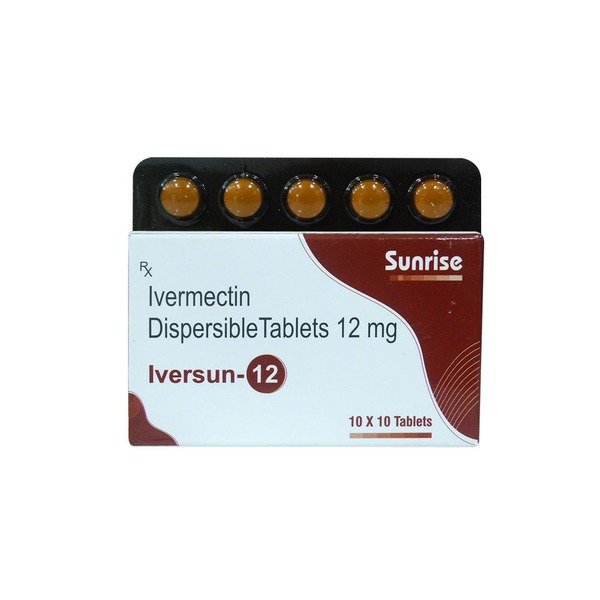
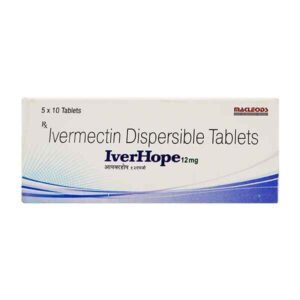
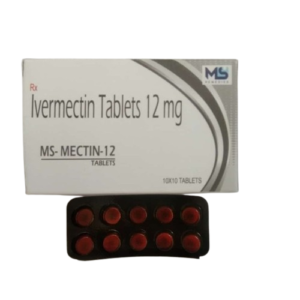
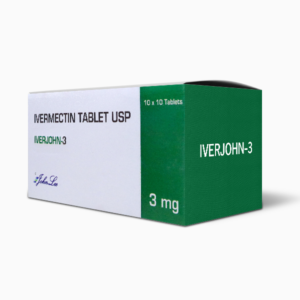
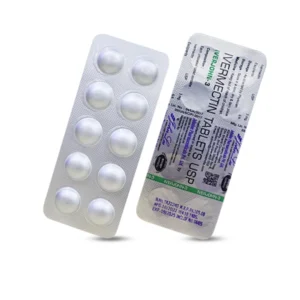



Reviews
There are no reviews yet.